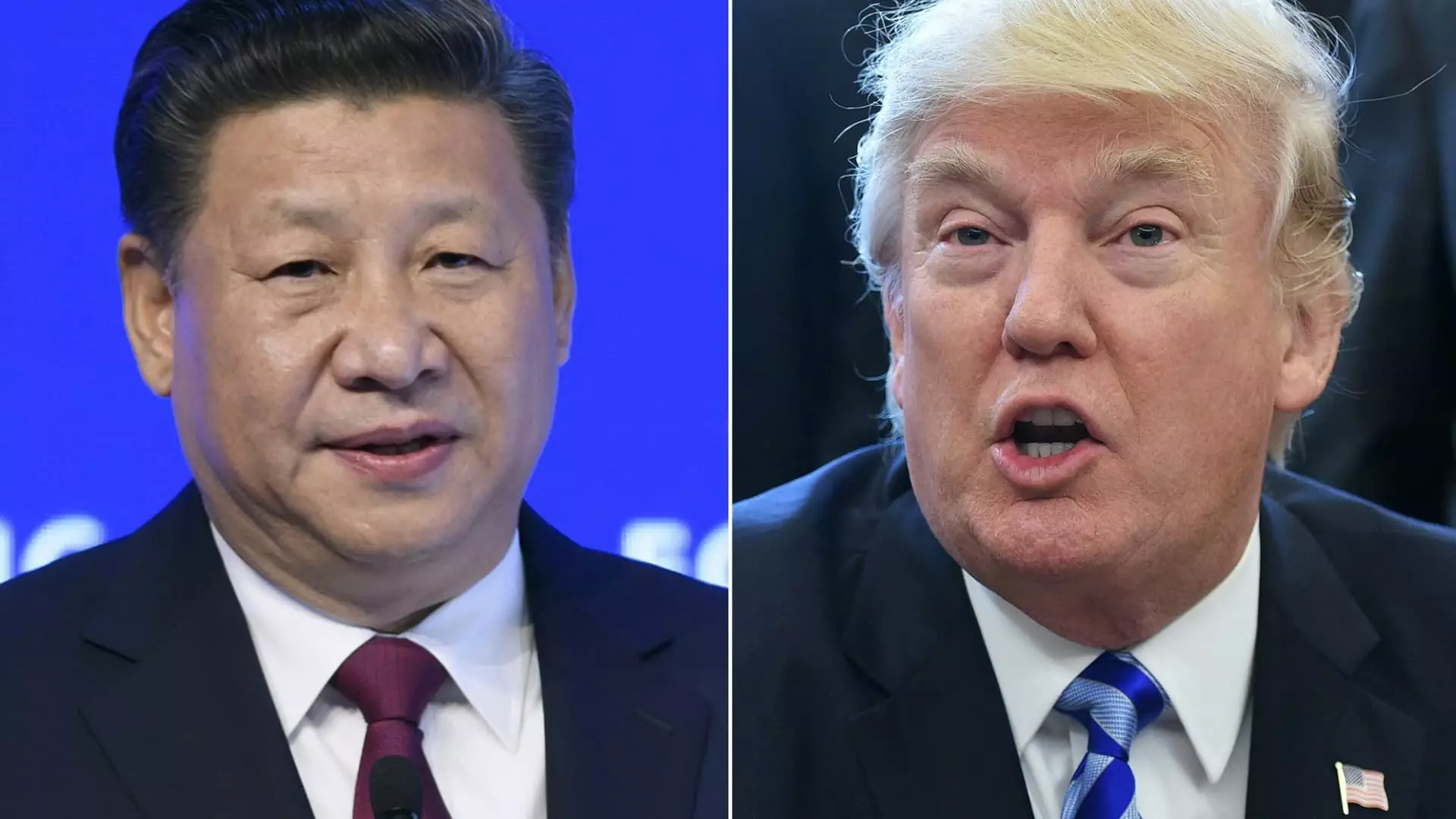The ongoing saga of U.S.-China trade relations exhibits a precarious dance fraught with tension, mistrust, and unforeseen consequences. President Trump’s recent outburst condemning China’s alleged violations of a preliminary trade agreement highlights the fragility of such international accords. With a brash tone that has become signature for Trump, he lamented on social media about China’s supposed lack of commitment, declaring, “So much for being Mr. NICE GUY!” Such proclamations might play well to his base, but they represent a worrisome trend in an already volatile relationship.
Impacts on the Market
Immediately following Trump’s remarks, the stock market reacted appropriately—with futures plummeting. This direct correlation between presidency rhetoric and market performance raises serious questions about the stability of American economic interests. The immediate chaos triggered by inflammatory statements suggests that the health of the U.S. economy is unnervingly entwined with the whims of political posturing. When decisions are swayed by emotion rather than rationale, the consequences ripple through every layer of the economic space.
Voices of Dissent
Officials such as U.S. Trade Representative Jamieson Greer rallied behind the President, echoing concerns over China’s compliance. This approach, echoing a united front, overlooks an essential truth: the issue is not simply one of compliance or non-compliance. It’s a blatant symptom of a larger rift—a clash of values and ambitions that defines the economic landscape of both nations. By labeling China’s actions as “completely unacceptable,” the administration’s rhetoric further entrenches an adversarial approach rather than seeking constructive paths toward negotiation.
The Reality of Trade Tariffs
Trump’s tactics of imposing tariffs as a means of negotiation were initially viewed as a powerful tool to bolster American manufacturing. Yet, the fallout has revealed the deeper cracks in this strategy. Tariffs intended to punish or pressure can prompt a counterproductive response, where both nations experience economic strain. What Trump describes as a “good news” situation—the stabilization of China after negotiating a temporary pause in tariffs—stands on shaky ground if compliance is not genuinely fortified.
The Human Cost
With Trump’s admission that he sought to shield China from economic ruin, one wonders at the implications behind this “deal.” Has anyone truly considered the ordinary American workers left to bear the brunt of this chess game? While factories in China may have faced closure and unrest under heavy tariffs, American workers have been left grappling with the consequences of a trade war. The ensuing chaos begs revisiting the narrative constructed around national interest versus individual suffering.
A Question of Credibility
Trump’s remarks about China’s apparent “depth of danger” may reflect an alarming reality; yet, projecting oneself as the savior of a nation facing dire economic circumstances contradicts the principles of fair trade and mutual respect. His boast of coming to China’s rescue contradicts the motivations that should drive both countries toward collaboration instead of confrontation. The phrase “Trump Always Chickens Out,” though humorous to some, captures a deeper irony—standing firm in negotiations is crucial in political and economic arenas, but a whimsical approach can undermine credibility.
More Than Markets
The challenge presented by the U.S.-China dynamic extends beyond simply navigating tariffs and trade agreements. It’s about establishing a new foundation of cooperation that prioritizes sustainable economic growth, fair practices, and respect for labor rights. There exists a significant opportunity for dialogue rather than a tit-for-tat exchange. By fostering mutual respect and confronting tough realities—both truths about economic grievances and individual dignity—we might pave a way forward that steers us away from bitter conflict towards a harmonious coexistence.
Trade, it must be remembered, is not merely the exchange of goods and services; it embodies the interconnectedness of societies. As the winds of rhetoric swirl around the Oval Office, it’s imperative to advocate for strategies that promote dialogue, bridge divides, and respect the humanity entwined within these contentious negotiations.


Leave a Reply